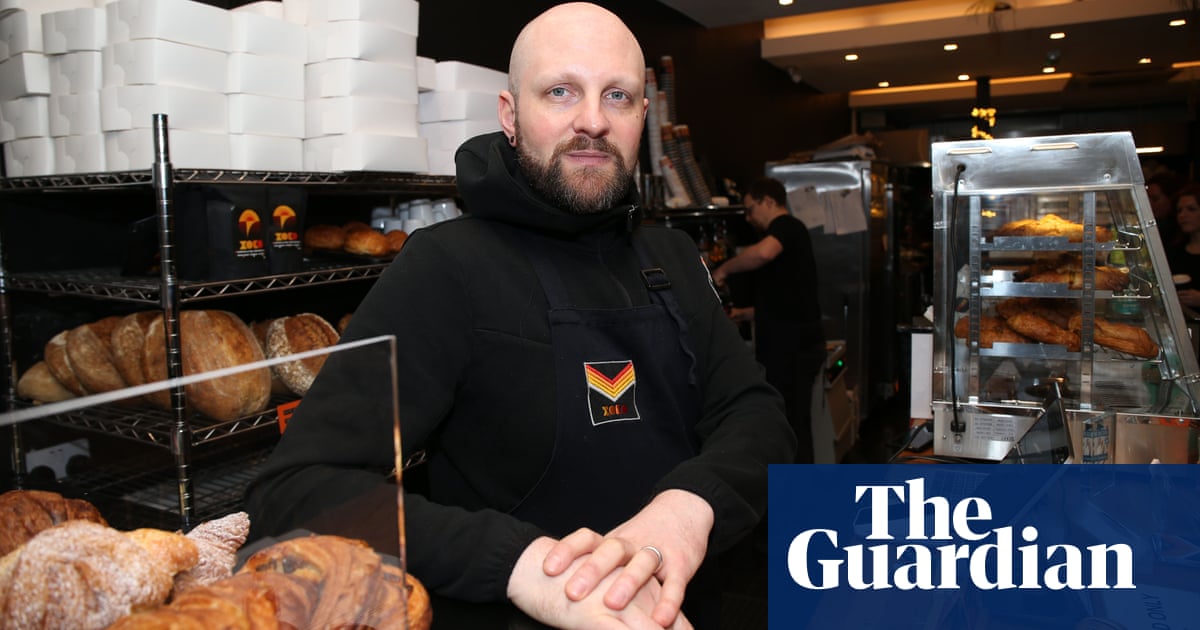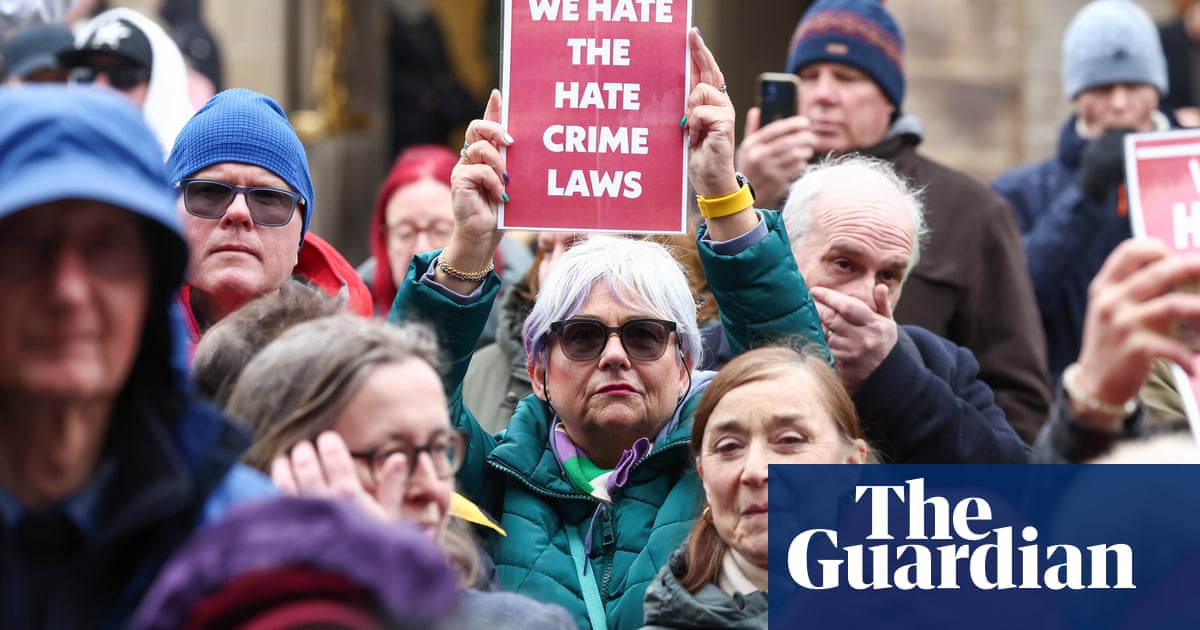
“We sell flat whites and make croissants in a bakery that’s supposed to be a safe place for the people who work here and the customers who visit. We didn’t expect to be targets of hate.”
Tristan Aitchison runs the Xoko bakehouse in Inverness. Over the past year, the LGBTQ+-inclusive cafe has been subject to a succession of alleged hate incidents, including the Pride flag being ripped from its door on several occasions, as well as spitting and verbal abuse, resulting in staff working at night being issued with panic alarms.
“If people want to voice an opinion, I don’t have to agree with it, but when someone comes into my cafe and tells us we are all going to hell, that’s not appropriate,” says Aitchison.
This week has seen fierce criticism of the potential impact of the Scottish government’s new hate crime act on freedom of speech.
On Saturday, gender-critical activists and counterprotesters gathered in Edinburgh, with no arrests made, according to Police Scotland.
There has also been an intense focus on whether particular comments on social media constitute an offence under the act.
The Hate Crime and Public Order (Scotland) Act consolidates the existing law on crimes that are “aggravated by prejudice”, but it also creates a new offence of behaviour that is “threatening, abusive or insulting” and “intends to stir up hatred” on the grounds of age, disability, religion, sexual orientation, transgender identity and variations in sex characteristics.
Its critics have raised concerns that it fails to explicitly protect women, with some gender-critical feminists fearing it could limit their ability to speak out on what they see as a clash between their rights and those of transgender people. Last Monday, JK Rowling dared the police to arrest her.
But campaigners working with people the new law seeks to protect have said they fear the debate has veered too far from the reality of hate crime and those who experience it on a sometimes daily basis.
“Yes, there is vile stuff online but in the real world people are facing threats of violence,” says Aitchison.
Adam Stachura, Age Scotland’s policy director, said: “We seem to have lost sight in this debate about the big issue of how to make people’s lives better, and addressing the intolerable experiences of those who are subject to hateful abuse on a daily basis.
“The current system was clearly not working for them, which is why so many different groups came together to work with the government on updating the law to make it more fit for purpose, and also working with police and communities to tackle the significant under-reporting that still goes on.”
The new act includes age as a protected characteristic for the first time. “It is really important to see age included for the first time as we will get a much better picture of how this features in criminal acts, and how it cuts across other protected characteristics, such as being older and gay, or older and an ethnic minority, for example,” said Stachura.
He added: “Let’s not forget the majority of this is about addressing significant acts of hate because of who you are – being shouted at in the street because you’re in a wheelchair, physically attacked for holding hands with a same-sex partner, or because you are old and are seen as an easy or vulnerable target.”
Khaleda Noon, chief executive of Intercultural Youth Scotland, agrees that a shift in focus is necessary. “The focus has got to return to the people who are actually experiencing hate crime, whether that’s racism, ableism, homophobia.”
“From my experiences, these hate crimes happen much more often on the street than online, and while some people moan about not being able to make certain jokes any longer, hate crime is usually far more serious than that.”
Danny Boyle of BEMIS, the national umbrella body supporting the development of Scotland’s minority-ethnic voluntary sector, welcomed an underdiscussed element of the bill, which creates a new duty on the Scottish government to provide more detailed statistics about racial and religious offences. “In Scotland, Catholics and Muslims face significantly disproportionate levels of religious aggravations which are often conflated with ethnic identities, specifically Irish and Pakistani.”
Much of the criticism of the act has concerned whether the new stirring-up offence, extended to a much wider range of protected characteristics, could be weaponised to shut down robust conversations about, for example, sex and gender. But Boyle also said that the stirring up of racial hatred, which has been an offence since 1986, “is used to target threats and incitements to extreme violence and hatred”.
Other campaigns did not want to speak publicly about their hopes for the act, given this week’s furore, but agreed that the previous system was not sufficient. A number raised concerns that the row over gender might put people off reporting of other hate crimes.
Dan Harry, the Scottish star of the UK’s first all-gay dating show, who campaigned for improved strategy and data collection on hate crime, said: “The real purpose of this law is getting lost right now and it is frustrating how the gender argument is constantly pulled in as a distraction.
“Try walking in the shoes of a trans person on the street: they’re not trying to hurt anyone, just trying not to be hurt themselves. I know I feel scared in certain areas, and I’m a cis, white gay man, but I’ve still experienced hate crime myself. This angry online discourse does impact on real people in real life.”












